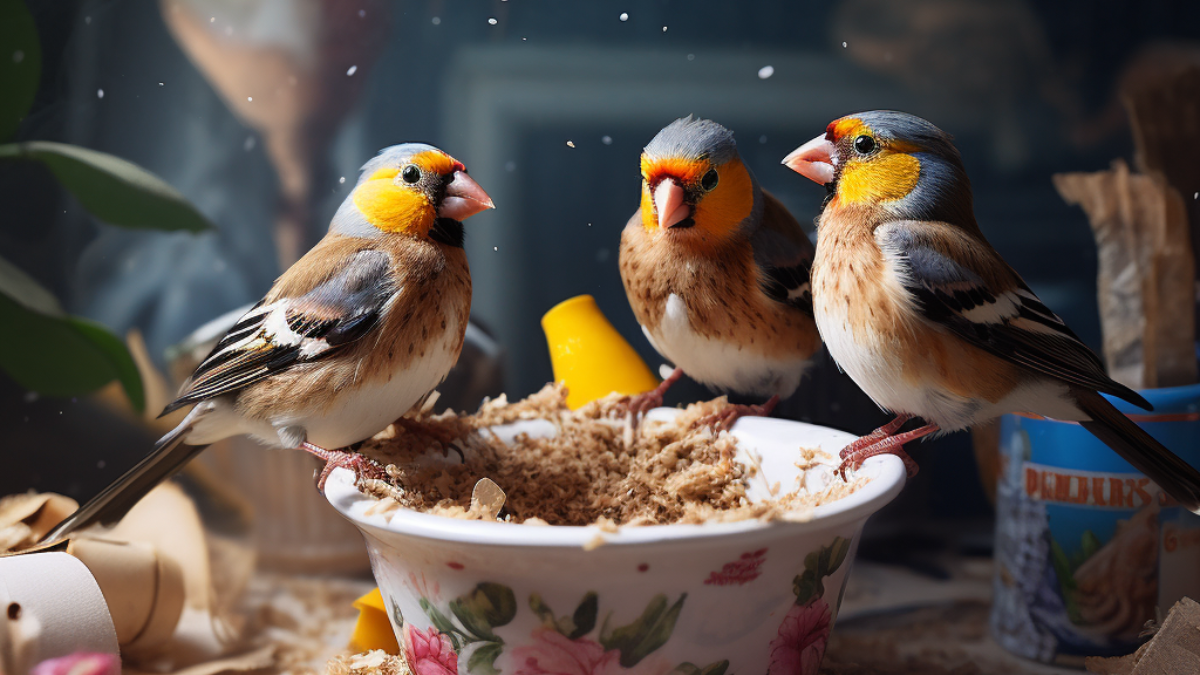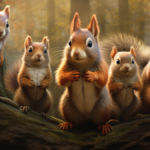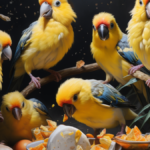Birdwatching is a delightful pastime that allows us to connect with nature and observe the beauty of our avian friends. As we spend time with these feathered creatures, it’s only natural to wonder about their dietary preferences. One question that often arises is Can Birds Eat Weetabix, a popular breakfast cereal loved by many. In this article, we’ll explore the fascinating world of avian cuisine and uncover the truth behind the idea of birds munching on Weetabix.
Understanding the Avian Diet
Before we delve into the specific question of Weetabix, it’s crucial to understand the typical diet of birds. Birds are incredibly diverse in their eating habits, ranging from seed-eaters to insectivores and nectar-feeders. Their beaks, digestive systems, and feeding behaviors are all uniquely adapted to their specific food sources.
The Truth About Weetabix and Birds
Weetabix is a whole-grain cereal made from wheat, and it’s a popular breakfast choice for humans. However, when it comes to feeding our feathered friends, Weetabix may not be the best option. While birds are adaptable and may sample various foods, it’s essential to prioritize their nutritional needs and offer them suitable choices.
Why Weetabix May Not Be Ideal for Birds
Weetabix is primarily designed for human consumption, and it contains added sugars, salt, and other ingredients that may not be beneficial for birds. Additionally, Weetabix becomes mushy when mixed with milk or water, and this texture may not be suitable for birds to consume. Birds have different beak shapes and sizes, and their ability to handle soft or sticky foods varies.
Best Foods for Our Feathered Friends
Instead of offering Weetabix to birds, consider providing them with foods that align with their natural diet. Some excellent options include:
Bird SeedsA high-quality bird seed mix can attract a variety of birds to your backyard. Look for mixes that contain sunflower seeds, millet, and cracked corn, as these are favorites among many bird species.
- Suet
Suet is a valuable source of energy for birds, especially during colder months. It is a high-fat substance made from animal fat and mixed with birdseed, nuts, or dried fruits.
- Fresh Fruit
Certain fruits, such as apples, berries, and grapes, can be offered to birds. Cut the fruits into small pieces to make them easier for birds to handle.
- Nectar
For nectar-feeding birds like hummingbirds, a mixture of four parts water to one part white granulated sugar closely mimics the natural nectar they consume from flowers.
Real-Life Observation: A Mischievous Magpie
Meet Mike, an avid birdwatcher with a particular fondness for magpies. One day, while having breakfast in his backyard, Mike spotted a curious magpie eyeing his Weetabix. Intrigued, he decided to experiment and left a small piece of Weetabix on the table.
To Mike’s surprise, the magpie hopped onto the table and cautiously nibbled on the Weetabix. However, after a few bites, the magpie lost interest and flew away. It seemed that the mushy texture and unfamiliar taste did not appeal to the bird’s palate. From this experience, Mike realized that while some birds may try new foods out of curiosity, it’s crucial to offer them a variety of nutritious options.
In Conclusion: A Balanced Diet for Our Avian Companions
Birds bring joy and wonder to our lives, and as bird enthusiasts, we must ensure their well-being. While birds may occasionally sample human foods, it’s essential to prioritize their nutritional needs and offer them a diet that aligns with their natural preferences. Instead of Weetabix, consider providing them with a balanced mix of bird seeds, suet, fruits, and nectar to keep them healthy and thriving.
So, the next time you encounter a curious bird in your backyard, remember to respect their dietary preferences and offer them a delightful buffet of bird-friendly delights. Together, we can create a haven for our feathered friends and continue to enjoy the beauty of their presence in our lives. Happy birdwatching and happy bird-feeding!



